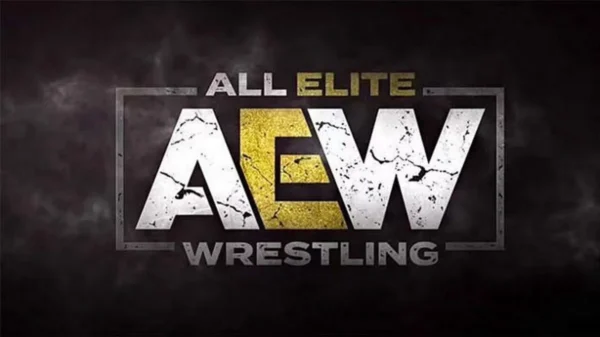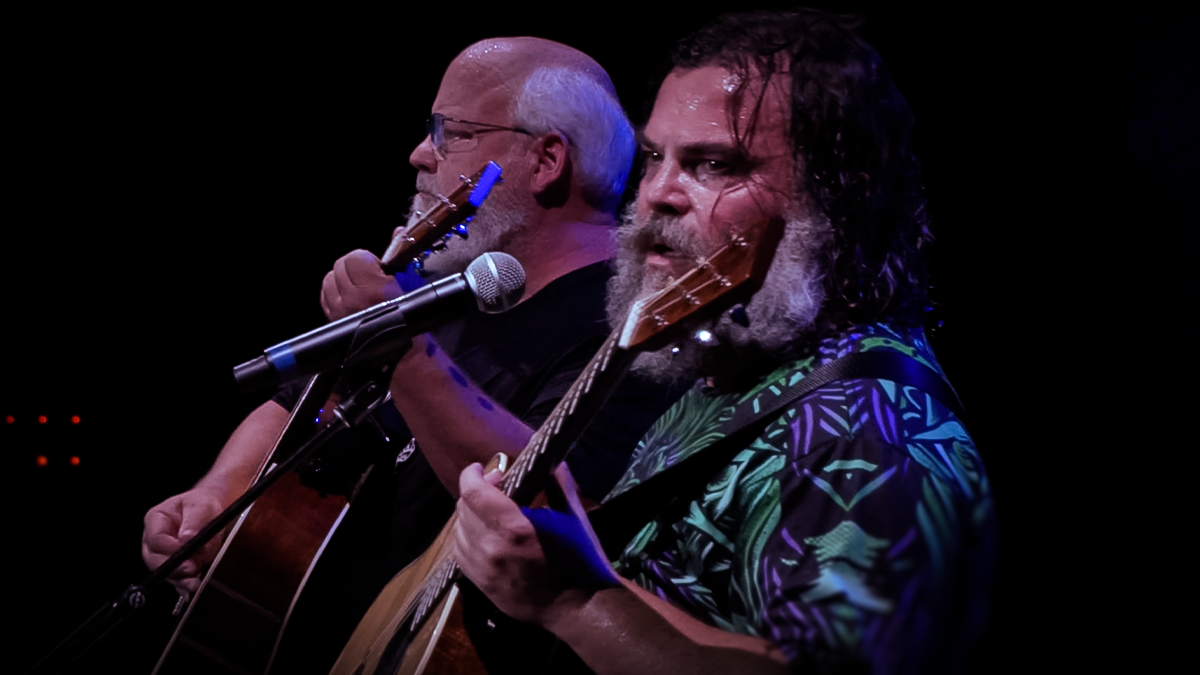Journalism Fundamentals
Telling the truth
- Be honest, accurate, truthful and fair. Do not distort or fabricate facts, imagery, sound or data.
- Provide accurate context for all reporting.
- Seek out diverse voices that can contribute important perspectives on the subject you’re writing.
- Ensure that sources are reliable. To the maximum extent possible, make clear to your audience who and what your sources are, what motivations your sources may have and any conditions people have set for giving you information. When unsure of information, leave it out or make clear it has not been corroborated.
- Correct errors quickly, completely and visibly. Make it easy for your audience to bring errors to your attention.
- If a report includes criticism of people or organizations, give them the opportunity to respond.
- Clearly distinguish fact from opinion in all content.
Conflicts of interest
- Avoid any conflict of interest that undermines your ability to report fairly. Disclose to your audience any unavoidable conflicts or other situational factors that may validly affect their judgment of your credibility.
- Do not allow people to make you dishonestly skew your reporting. Do not offer to skew your reporting under any circumstances.
- Do not allow the interests of advertisers or others funding your work to affect the integrity of your journalism.
Community
- Respect your audience and those you write about. Consider how your work and its permanence may affect the subjects of your reporting, your community and since the Internet knows no boundaries the larger world.
Professional Conduct
- Don’t plagiarize or violate copyrights.
- Keep promises to sources, readers and the community.
- If you belong to a news organization, give all staff expectations, support and tools to maintain ethical standards.
Nature of Your Journalism
- We encourage journalists to express opinions in their news coverage, but their facts must be accurate.
- Our reporters may express personal opinions in their own accounts on social networks.
- Our journalists, salespeople and executives work to ensure that advertisers, sponsors and contributors have no influence over editorial content.
Bombs and Other Threats
- We will not publish bomb threats if a request is made by responsible community officials.
Concealing Identity
- We permit undercover reporting only when we feel a story is important enough to justify doing so, and we have exhausted all other reasonable methods.
Confidential Sources
- We use confidential sources sparingly to provide important information that cannot be obtained through on-the-record sources. Reporters should disclose the identity of unnamed sources to at least one editor.
- We will disclose to readers or viewers the reasons for granting confidentiality, such as fear for the source’s safety or job, when we use unnamed sources.
- We publish information from confidential sources that we consider reliable, but do not publish the opinions of unnamed sources.
- We do not attend “background briefings” where officials try to spoon-feed information to the media without speaking for the record.
- We recognize that many sources cannot talk to us freely. We grant confidentiality if we think the source has a good reason. We will use information and quotes from unnamed sources we consider reliable.
- We always assume that government snoops, law enforcement or hackers might access our regular communication channels when we grant confidentiality to a source. We should use technology such as encryption software or “burner” cell phones to protect confidentiality.
Children: Coverage, Images and Interviews
- We refrain from featuring photos of children who are connected with a crime as perpetrators, victims or witnesses.
- Our journalists always obtain a parent’s permission before interviewing or photographing a child.
- We avoid identifying — by name or photo — children who are connected with a crime as perpetrators, victims or witnesses.
Hostage Situations
- We will cooperate with authorities’ recommendations in covering hostage situations.
- We believe our primary responsibility in covering hostage situations is to help bring a peaceful resolution and not to advance the hostage-holders’ cause.
Interviewing
- Our organization never pays for interviews.
- Our organization never permits interview subjects to review or revise their comments.
- Our organization will provide interview subjects with a general idea of our questions in advance.
- Articles and reports must state the method of interviewing (i.e., whether it was in person, by telephone, video, Skype or email) if doing so enhances the context of the interview and article.
Sources: Reliability and Attribution
- We refrain from quoting sources who have a conflict of interest relating to the story (e.g. a scientist who conducted a study about a drug’s effectiveness when the study was funded by the manufacturer). These sources may be used for background information, but their voices should not be included in stories.
- We disclose how sources In “ordinary people” stories were identified (e.g. through Twitter).
- We use links, if available, for source attribution in online stories.
- We include source attribution in online stories themselves as well as links, if available, that provide additional information.
- We consistently include clear attributions throughout a story, even if something has been established as fact.
Accuracy
- Our staff members must take responsibility for the accuracy of all information that we publish, using an accuracy checklist before publication.
- Our staff members should take reasonable steps to ensure the accuracy of information that we publish and note our sources.
- We should not publish rumors or other information we have not verified.
- Reporters should fact-check before publication but should not preview any of the actual text of a story with sources.
Balance and Fairness
- To ensure fairness, we believe in covering not only the most powerful voices on an issue, but also those who are not normally heard (e.g. in election coverage, mainstream and non-mainstream candidates).
- We will be alert to situations where the most accessible spokesmen are at the extremes of issues, but most people are somewhere in the middle.
- We will refrain from presenting multiple points of view if one perspective on an issue has been credibly established as fact. In other words, we will avoid “false balance.”
- In breaking news situations, we will attempt to gather comments from key sides of an issue; if comments are not immediately available, we will publish or air the story without them, make clear that we were unable to get some comment and update our story as needed.
- If an issue generates debate — even if one perspective on the issue has been credibly established as fact — we will seek out and report dissenting views in a proportionate way, only when the topic of the report is the debate.
Online Commenting
- We review every comment by every commenter.
- We have a system that permits individuals to “flag” comments for potential problems, and we review those “flagged” comments in a systematic and timely fashion.
- We permit comments on all articles.
- We allow pseudonyms for commenting as long as a user has registered an account with us.
- We will access and review the identity of a registered commenter only when subpoenaed by law enforcement.
Quotations
- We will clean up random utterances such as pauses, “um” or “you know” unless they materially alter the meaning.
- We will allow separate phrases of a quote separated by ellipsis. (“I will go to war … but only if necessary,” the president said.)
- We will allow separate phrases of a quote separated by attribution. (“I will go to war,” the president said. “But only if necessary.”)
Withholding Names
- We do not publish names of sexual assault victims unless they agree to speak on the record.
- In breaking news stories, we do not publish the names of dead people until authorities have notified their families and released the names.
- We should always be careful about identifying kidnap victims if the person may be in danger.
- In covering active police or military operations, we will withhold such details as location or tactics planned, until after the operation, to avoid endangering police, troops or civilians who could be affected.
- We will consider potential harm to sources facing intolerance in their societies before naming them in stories.
Financial Interests
- Our journalists should immediately disclose to a supervisor any interests they have in a company they are asked to cover. Supervisors should consider putting another journalist on the story.
Community Activities
- Our journalists are encouraged to be involved in the community and the issues we cover, but we will disclose these involvements in our coverage.
- We will provide factual coverage in a neutral voice despite our organization’s involvement in the issues we cover. We will disclose our affiliation for transparency reasons, but the affiliation should not be evident from a promotional voice or content.
Gifts, Free Travel and Other Perks
- Our journalists should accept no gifts from subjects or potential subjects of our coverage. If gifts sent to journalists cannot be returned, we should donate them to charity.
- Our journalists may accept tickets or press passes to events we are covering or reviewing, but should not accept extra tickets for family or friends.
- Our journalists should disclose any gifts they receive to their supervisors and discuss whether something needs to be returned, disclosed, paid for, donated to charity or handled in some other way that protects our integrity.
Personal Ethics Statements by Staff
- Our journalists should work precisely to our company ethics and standards; personal ethics statements are, therefore, not necessary.
Plagiarism and Attribution
- We believe a link to a digital source is sometimes sufficient attribution; we need not always name the source in the text if the information is routine.
- When we are using someone else’s exact words, we should use quotation marks and attribution.
- We should always cite news releases if they are our sources, and should quote them if using their exact words.
Political Activities by Staff
- Our journalists should avoid political involvement such as running for or holding office, joining political parties, volunteering in campaigns, serving on community boards, donating to campaigns or displaying campaign materials on their property or persons.
- Our journalists should avoid coverage of an issue or campaign if a family member’s political involvement would call into question the integrity of a journalist’s coverage. If avoiding such a family conflict is impossible, we will disclose the family member’s involvement in related coverage.
- Our journalists should be aware of personal biases that can skew their reporting, even if journalists conduct no public activity indicating a political bias. They will consider publishing personal ethics statements, or making colleagues aware of their beliefs to help backstop the objectivity of their work.
Social Networks
- Our journalists are free to express opinions on social media.
- We encourage staff members to retweet, reblog, share and otherwise pass along things they find interesting on social media. We trust them to provide context where appropriate.
- Staff members should note in their social media profiles that retweets or shares are not endorsements.
- Staff members should always identify themselves in social media profiles, and, if they are using the profile for professional purposes, they should identify themselves as working for our organization.
- If staff members want to share unconfirmed information on social media, such as rumor or hearsay, they should explain in the post why they are posting this information, such as seeking community confirmation for the report.
- Staff members communicating with and about people in dangerous situations, such as war, crime or disaster zones, should consider the safety and security of people depicted or addressed in the social media content.
- For platforms that don’t allow editing of posts, we should leave original posts untouched, unless they are defamatory or otherwise legally problematic.
- We should edit or delete inaccurate social media posts, so people who haven’t seen the corrections will not spread them on social media. We should note that we have edited or deleted inaccurate posts.
Awards and Contests
- We will accept awards only from journalistic organizations, with judges who are journalists.
Censorship
- In military situations, we will agree to censorship and other restrictions that are reasonable for reasons of security and respect for troops.
Corrections
- If a mistake is made in a social media post, we will delete the original post and publish a corrected version with an indication that the new post is a correction.
- We will show all changes that have been made to online stories if they involve corrections or rephrasing to fix unclear material.
- We will show all corrections in the place the incorrect material originally appeared (e.g., put corrections related to a story at the bottom of that same story).
Freelance Work by Employees
- We permit freelancing by full-time employees, but they must receive explicit permission to do so from their direct manager before undertaking such work.
- We prohibit full-time employees from doing freelance work for a competing media organization as defined by company managers or for a political organization, elected official, government agency, candidate for office, or a non-profit agency with a political agenda, such as an environmental group.
- We allow part-time employees to perform freelance work, but they must notify their direct managers.
Handling and protection of freelancers and “fixers”
- We will publicly credit the work of freelancers, fixers and translators unless doing so poses risk of harm, such as threatening a person’s safety.
Removing Archived Work
- We will never remove material from our archives.
- We will consider exceptions to our policy in extreme cases, such as abuse or danger to someone’s personal safety.
- We will delete inaccurate social media posts but acknowledge the deletions in subsequent posts.
Reporting On Your Organization
- We will avoid all potential conflicts of loyalty by refraining from covering the story when our organization has done something newsworthy. We will let others cover our organization. If an issue is particularly newsworthy, we will limit ourselves to publishing official company statements.
Robot journalism
- We consider our computer processes to be proprietary. We take full responsibility for our content, including automatically produced content; for editorial and competitive reasons, we do not feel a need to publicize our entire process.
Diversity
- We will set goals in hiring and promotions to increase diversity in our staff and management.
- We encourage staffers to seek diverse sources, both in specific stories and in routine beat coverage.
Hate Speech
- We report on hate speech and actions but include original offensive expressions only when specifically necessary for audience understanding of the case.
- We consider the perspectives of those offended by hateful expression when making publication decisions.
- We consider the climate for free expression when making publication decisions.
- We support local, national or international laws to combat hate speech.
Mental Health and Suicide
- We will cover mental health and suicide as broad public health issues as consistently as we cover other health matters.
- We will use the phrases “died by suicide” or “killed himself or herself” and avoid the phrases “committed suicide” and “took his or her own life.”
- We will not describe a suicide attempt as “successful” or “unsuccessful.”
- We will not use sensational headlines on stories about suicide.
- We will not use graphic images on stories about suicide.
- We will opt for everyday images of a person who dies by suicide (such as a school photo) instead of images of people grieving.
- We will Include contact information for resources for people in mental health crises. (e.g. “The National Suicide Prevention Lifeline in the United States is available 24 hours a day at 800-273-8255.)
- We will include the method used in a suicide when it is important for audience understanding but not specific details (e.g., noting that a victim shot himself but not covering the type of weapon).
Naming suspects
- We will not name criminal suspects until charges have been filed.
- We will name criminal suspects if we have their identifications confirmed by sources we trust.
- We will not name juvenile suspects in criminal cases unless they are charged with serious violent crimes, such as armed robbery, aggravated sexual assault, attempted homicide or homicide.
- If we publish a the name of a person arrested or charged with a crime, we will publish a story about the resolution of the case and update the original story and headline, if they are still online, with a link to the new story.
Obscenities
- We will use obscenities, vulgarities or slurs only in direct quotations and only if the quote is essential to the story.
- We will replace obscenities, vulgarities and slurs with something that implies the word rather than stating it directly (e.g. “f—”).
- Online we will place obscenities, vulgarities and slurs behind a warning.
- We will apply the same standards on obscenities, vulgarities and slurs to reader comments on stories that are applied to the story itself.
Privacy
- We respect individuals’ right to privacy and do not use content we discover online from private individuals without receiving their permission.
- We do not believe that everything celebrities and public officials say and do should be made public, even though they cede a great deal of privacy when they enter the public eye. We analyze cases on an individual basis, taking into account the news value of the public figure’s action.
- We use discretion when it comes to interviewing and publishing material from trauma victims or bystanders because we understand that to do so may cause additional harm to individuals.
Race and Gender
- We will seek out people in the groups we cover to gain perspective on our coverage and terminology.
- We will use racial, ethnic, gender and sexuality identifiers when specifically germane to a story but not otherwise.
- We will use racial, ethnic, gender and sexuality identifiers in stories about protests or other stories when participants are all, or almost all, from one group — even if the situation isn’t directly related to their identities.
- We will Identify transgender people by the gender they express publicly.
- We will use plural references to avoid gender-specific pronouns when possible.
- We will use male pronouns by default.
- We will use female pronouns by default.
Sensational Material
- We will run sensitive material that might be offensive to specific members of the audience after internal debate has demonstrated a clear public interest in and value from the publication.
- We will facilitate responses from the public to publication of sensitive material.
- We will consider the differing impact of sensitive material on differing segments of the population (e.g., effects on minors, vulnerable groups or victims of crime).
- We will refrain from running sensitive material specifically or solely for the revenue purposes, such as increased digital traffic.
- We will run sensitive material with stories with notes of warning.
Audio
- Audio cuts of newsmakers may be edited to remove insignificant stumbles, as long as there’s a disclosure that the audio was edited.
- Cuts and programs may be heavily edited and rearranged as needed, as long as there’s a disclosure the audio was edited, the meaning of statements remains the same after editing, and rearrangements of audio do not affect the original meaning.
- We will fully identify person-in-the-street-type speakers in audio cuts unless there is a compelling reason not to.
- Our journalists may never combine sound from different sources in such a way as to create an audio scene that never happened.
Data Journalism
- We will never pay for data, as it may be tainted by financial motives.
- In collaborative projects, we may not be able to insist on shared ethical values with partners, but we will disclose to our readers and viewers that we have separate policies from our partners.
- We will put all data in relevant context.
- We will not use personally identifiable data without specific and valid news value to support disclosure.
- We will secure data to the best extent possible to prevent hacking.
Interactives
- We will organize and internally link our interactives in a way that users entering and navigating in different ways will be able to grasp the essential points of the story.
- We will reconstruct or preview events through infographics or animations only if we are sure that every detail we show is correct.
Photo and Video
- When documenting private or traumatic moments, we will seek permission from subjects before shooting photos or video.
- We will use drones to capture images in public areas only.
- We will clearly label posed or re-enacted photos/video.
- We will refrain from intentionally becoming an active participant in a news story (e.g. taking part in a rescue operation or using our camera to influence a situation).
- We will obscure or pixellate images only when the intent is to protect the identify of someone in the image or to protect viewers from gory or graphic material.
- We will refrain from doing re-enactments of news events.
- We will refrain from using “handout” photos or video unless your own photographers are unavailable to cover the story.
- We will clearly label the source of all “handout” photos or video.
- We will use generic photos only when viewers would not expect to see a photo specific to the story (e.g. using a photo of a plane from an airline’s fleet to illustrate the kind of plane that was involved in a crash.)
- When using generic photos, we will make sure they are clearly labeled as such.
- If using music in video stories, we will be cognizant of the emotional effect the music may have, and avoid using music if the story is intended to have a neutral voice.
- We will verify photos or videos from social media before using them.
User-Generated Content
- We will guard against using UGC in situations that might be dangerous to the person who created it or to others in the images. We will stress to possible providers of UGC that they must not take risks to gather information or imagery.
- We consider UGC an extension of our own journalism. We don’t run such material unless we’re sure it’s authentic.
- We will not distribute UGC content unless we’re certain we have the rights to do so. The only exception might be an urgent situation where a rights-holder cannot be found.
- If we cannot find the rights-holder in an urgent situation and use the UGC, we will make continued efforts afterward to locate and reach an agreement with the rights-holder.
Virtual Reality Journalism
- Photos and video may be manipulated if needed to avoid disturbing scenes like dead children.
Accepting money
- Our funder(s) will not be able to see our stories before publication.
- Our funder(s) will have no say in topics to be covered or specific stories.
Clickbait and Metrics
- We are encouraged to write clever, creative headlines and social media posts that will entice readers to click on our stories, but headlines will not make promises that our stories don’t deliver.
- We will accurately reflect the content of related stories in headlines and social media posts.
- We will not use metric considerations in determining what we cover and how we place stories.
News and Advertising
- We do not allow advertisements for certain types of products.
- We do not allow advertisers to have a say in the selection or content of stories and photos.
- We have specific, consistent definitions of terms like “Advertisement,” “Sponsored Content” and “Message from …” and disclose them to our readers.
- We will require that items that look too much like news stories be accompanied by a clear statement that the article was prepared by the advertiser and did not involve our editorial staff.
- We make it clear when tweets or posts on our social media accounts are linked to advertiser-prepared material.
This page was last updated on December 18, 2020. This code may be subject to updates in the future.
* Note: Our code of ethics were built upon the balance of our convictions and practice of human decency and morality while adhering to our responsibility to the public’s need to know. These rules are specific to FWRD AXIS and overall standards are derivative of the SPJ Code of Ethics and the International Federation of Journalists.










































